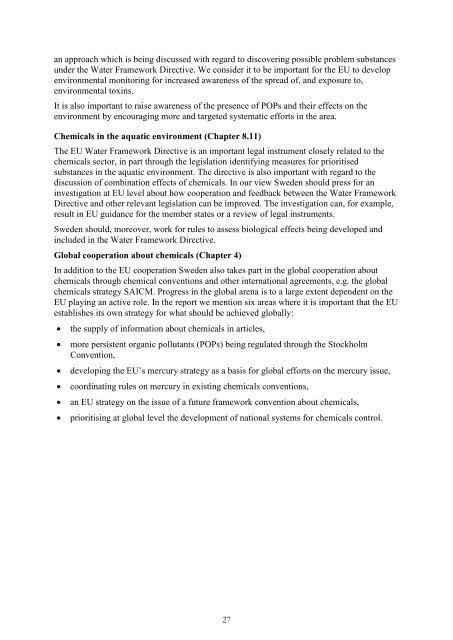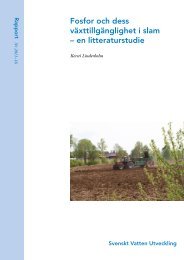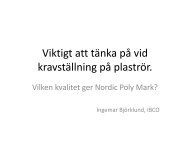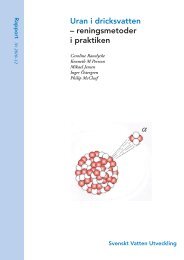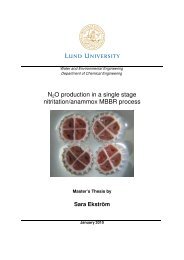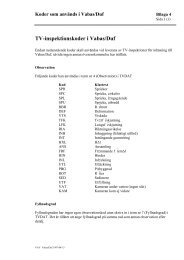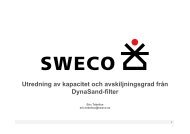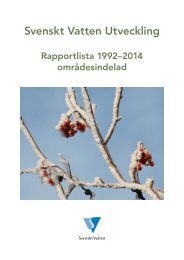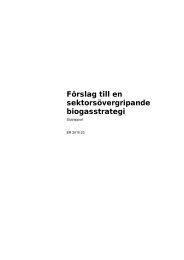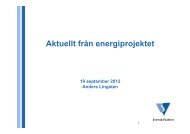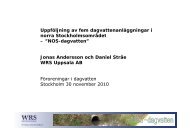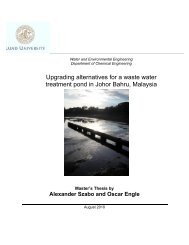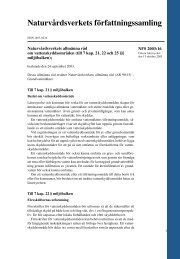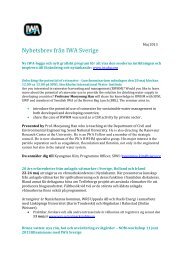Bättre EU-regler för en giftfri miljö - Kemikalieinspektionen
Bättre EU-regler för en giftfri miljö - Kemikalieinspektionen
Bättre EU-regler för en giftfri miljö - Kemikalieinspektionen
You also want an ePaper? Increase the reach of your titles
YUMPU automatically turns print PDFs into web optimized ePapers that Google loves.
an approach which is being discussed with regard to discovering possible problem substances<br />
under the Water Framework Directive. We consider it to be important for the <strong>EU</strong> to develop<br />
<strong>en</strong>vironm<strong>en</strong>tal monitoring for increased awar<strong>en</strong>ess of the spread of, and exposure to,<br />
<strong>en</strong>vironm<strong>en</strong>tal toxins.<br />
It is also important to raise awar<strong>en</strong>ess of the pres<strong>en</strong>ce of POPs and their effects on the<br />
<strong>en</strong>vironm<strong>en</strong>t by <strong>en</strong>couraging more and targeted systematic efforts in the area.<br />
Chemicals in the aquatic <strong>en</strong>vironm<strong>en</strong>t (Chapter 8.11)<br />
The <strong>EU</strong> Water Framework Directive is an important legal instrum<strong>en</strong>t closely related to the<br />
chemicals sector, in part through the legislation id<strong>en</strong>tifying measures for prioritised<br />
substances in the aquatic <strong>en</strong>vironm<strong>en</strong>t. The directive is also important with regard to the<br />
discussion of combination effects of chemicals. In our view Swed<strong>en</strong> should press for an<br />
investigation at <strong>EU</strong> level about how cooperation and feedback betwe<strong>en</strong> the Water Framework<br />
Directive and other relevant legislation can be improved. The investigation can, for example,<br />
result in <strong>EU</strong> guidance for the member states or a review of legal instrum<strong>en</strong>ts.<br />
Swed<strong>en</strong> should, moreover, work for rules to assess biological effects being developed and<br />
included in the Water Framework Directive.<br />
Global cooperation about chemicals (Chapter 4)<br />
In addition to the <strong>EU</strong> cooperation Swed<strong>en</strong> also takes part in the global cooperation about<br />
chemicals through chemical conv<strong>en</strong>tions and other international agreem<strong>en</strong>ts, e.g. the global<br />
chemicals strategy SAICM. Progress in the global ar<strong>en</strong>a is to a large ext<strong>en</strong>t dep<strong>en</strong>d<strong>en</strong>t on the<br />
<strong>EU</strong> playing an active role. In the report we m<strong>en</strong>tion six areas where it is important that the <strong>EU</strong><br />
establishes its own strategy for what should be achieved globally:<br />
• the supply of information about chemicals in articles,<br />
• more persist<strong>en</strong>t organic pollutants (POPs) being regulated through the Stockholm<br />
Conv<strong>en</strong>tion,<br />
• developing the <strong>EU</strong>’s mercury strategy as a basis for global efforts on the mercury issue,<br />
• coordinating rules on mercury in existing chemicals conv<strong>en</strong>tions,<br />
• an <strong>EU</strong> strategy on the issue of a future framework conv<strong>en</strong>tion about chemicals,<br />
• prioritising at global level the developm<strong>en</strong>t of national systems for chemicals control.<br />
27


